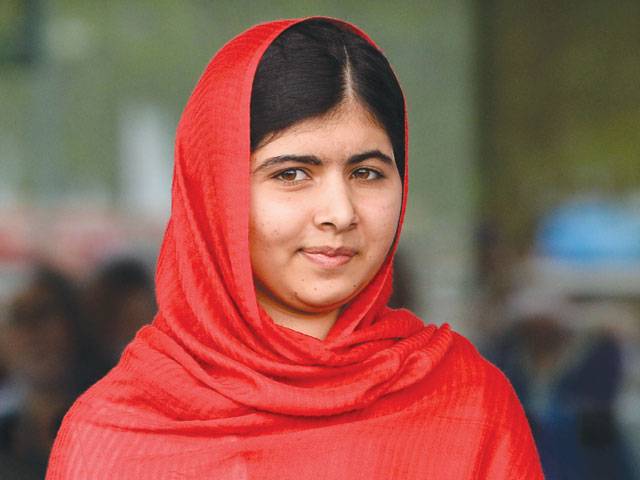Malala attackers jailed for life

SWAT - Anti-Terrorism Court (ATC), Saidu Sharif, on Thursday awarded life imprisonment to 10 accused for a murder attempt on Nobel laureate Malala Yousafzai. According to details, Anti-Terrorism Court (ATC) Judge Muhammad Amin Kundi awarded life term to the 10 accused found guilty in the Malala Yousafzai attack case in 2012. Sources said Ataullah, the main accused in the assassination attempt on Malala Yousafzai, had escaped to Afghanistan. ISPR DG Asim Bajwa confirmed that the 10 arrested militants had confessed that Tehreek-e-Taliban Pakistan chief Mullah Fazlullah was the mastermind of the attack. In the light of the available evidence, the special anti-terrorism court announced its verdict, awarding life imprisonment to all the accused.
The convicts are Zafar Iqbal, Adnan, Salman, Irfan, Hazrat Bilal, Izhar, Zafar Ali, Shaukat Ali, Ikram and Israr Rehman.
Malala who was only 15 at that time was shot in the head when she was travelling in her school van in the Sharifabad area of Mingora, Swat, in October 2012. The news of the attack spread like jungle fire around the globe.
Malala was sent to UK for treatment and is currently living in Birmingham with her family. They are unable to return to Pakistan because of life threats from militants.
Malala’s classmates, Shazia and Kainat, were also injured in the attack on the school van.
Malala was awarded Nobel Peace Prize over campaigning for children’s rights, even risking her life.
AFP adds from Peshawar: Pakistani Taliban militants boarded the school van and shot Malala in the head for her outspoken views on girls’ education.
Malala, now 17, survived and in October last year became the youngest winner of the Nobel Peace Prize in history for her courageous and determined fight for all children to have the right to go to school.
Pakistan’s military announced the arrest of the 10 convicts in September 2014 as part of an operation that involved the army, police and intelligence agencies.
Army spokesman Asim Bajwa said the group had a hit list of 22 targets in addition to Malala, all ordered by Fazlullah.
Pakistan has been battling a homegrown Islamist insurgency for over a decade following the US-led invasion of Afghanistan, though the fighting has at times proven unpopular among those who believe Muslims should not wage war on their co-religionists.
Public opinion has, however, shifted heavily against the Taliban in recent times after brazen attacks on civilian targets, including Army Public School in Peshawar.
Malala first rose to prominence in 2009, aged just 11, with a blog for BBC Urdu service in Swat under the Taliban rule.
Under their rule, opponents were murdered, people were publicly flogged for supposed breaches of sharia law, women were stopped from going to markets and girls were prevented from going to school.
In her autobiography published in 2013, Malala said she was receiving death threats in the months before the attack. “At night I would wait until everyone was asleep,” she wrote. “Then I’d check every single door and window.”
Malala was flown to Britain for medical treatment following her attack. The Taliban have vowed to kill her if she ever returns to her homeland.
But she has continued her activism, championing the cause of the 219 Nigerian schoolgirls kidnapped a year ago by Boko Haram militants, raising money for destroyed schools in Gaza and calling for universal education at the UN General Assembly. In spite of her accomplishments, she remains an object of hate for many Pakistanis who view her as a Western agent on a mission to shame her country.





